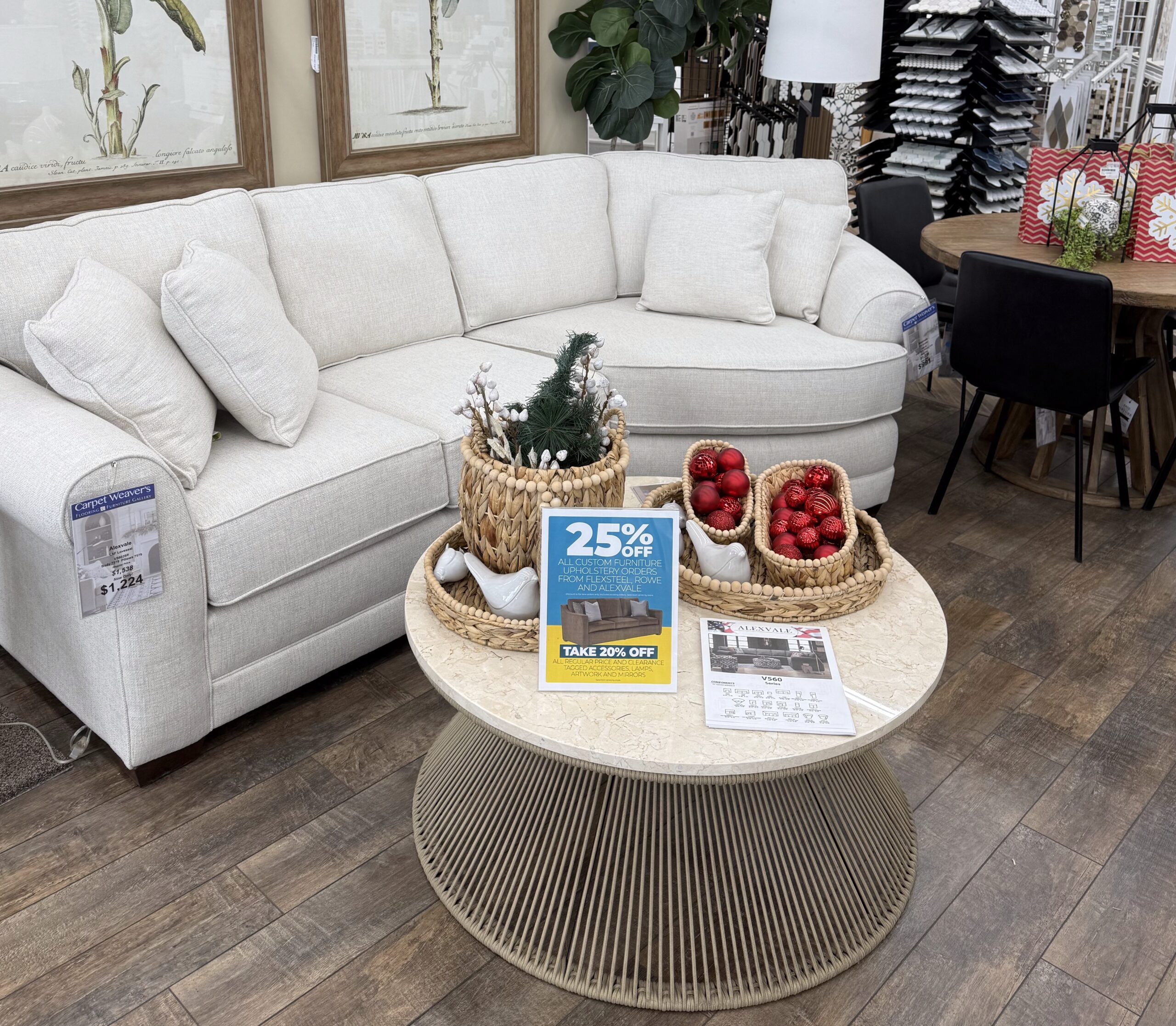When it comes to choosing the right flooring for your basement, it’s crucial to balance aesthetics, durability, and functionality. The unique environment of basements—often prone to moisture and less natural light—requires flooring that can withstand these conditions while still looking great. Here’s a detailed look at the best options for basement flooring from our flooring and furniture experts at Carpet Weaver’s.
What to Consider Before Buying Basement Flooring
Before purchasing basement flooring, it’s essential to evaluate several factors to ensure you make the best choice for your space. First, consider the moisture level in your basement, as this can significantly impact the type of flooring suitable for the area. Waterproof or moisture-resistant options, like luxury vinyl or tile, are often ideal. Next, think about the intended use of the basement. Is it a high-traffic area, a cozy living space, or a functional utility room? The durability, comfort, and maintenance requirements of different flooring types will vary depending on their usage. Additionally, consider the installation process and whether you need a professional or can handle it as a DIY project. Finally, keep your budget in mind, balancing upfront costs with long-term value and maintenance expenses. Taking these factors into account will help you select the best flooring option for your basement’s unique needs.
Luxury Vinyl Flooring (LVF)
Luxury vinyl flooring stands out as one of the best options for basements. It’s designed to mimic the look of natural materials like wood or stone while offering superior resistance to moisture. This makes LVF an ideal choice for areas prone to dampness or occasional flooding. Additionally, luxury vinyl is durable, easy to clean, and relatively simple to install, making it a practical and attractive choice for basement spaces.
Key Benefits:
-
- Waterproof: Perfect for moisture-prone areas.
-
- Aesthetic Versatility: Available in various styles and finishes.
-
- Durability: Resistant to scratches and wear.
Tile
Tile is another excellent option for basements, particularly ceramic or porcelain tiles. Both types are highly resistant to water and can handle the humidity and potential leaks that basements often experience. Tiles are also easy to clean and maintain, making them a practical choice for high-traffic areas.
Key Benefits:
-
- Moisture Resistance: Ideal for wet environments.
-
- Low Maintenance: Easy to clean and durable.
-
- Variety: Available in many styles and colors to match your design preferences.
Engineered Hardwood
While solid hardwood is typically not recommended for basements due to its susceptibility to moisture, engineered hardwood is a viable alternative. Engineered wood is constructed with a plywood base that provides added stability and resistance to humidity. This type of flooring can give your basement a warm, inviting look without the risk of warping or damage associated with traditional hardwood.
Key Benefits:
-
- Stable: Better moisture resistance than solid hardwood.
-
- Aesthetic Appeal: Offers the beauty of natural wood.
-
- Easy Installation: Can often be installed as a floating floor.
Carpet
For those who desire a cozy, warm feel in their basement, carpet is a great option. Modern carpets designed for basements are made from synthetic materials that resist mold and mildew. Additionally, carpet tiles are an excellent choice for basements because they are easy to install and replace if damaged.
Key Benefits of Basement Carpet:
-
- Comfort: Adds warmth and softness underfoot.
-
- Variety: Available in numerous styles, colors, and textures.
-
- Insulation: Provides sound insulation and warmth.
Laminate Flooring
Laminate flooring can be a good option for basements if installed with a proper vapor barrier. Modern laminate designs can mimic the look of wood or stone at a fraction of the cost. It’s also relatively easy to install and maintain.
Key Benefits:
-
- Cost-Effective: Affordable alternative to natural materials.
-
- Variety: Available in numerous designs.
-
- Easy Installation: Often features a click-lock installation system.
Selecting the best flooring for your basement involves considering the specific conditions of the space and your personal preferences. Luxury vinyl, tile, engineered hardwood, carpet, and laminate all offer unique benefits that can enhance the functionality and appearance of your basement. By understanding the properties of each flooring type, you can make an informed decision that will add value and comfort to your home for years to come.For expert advice and a wide range of flooring options, visit Carpet Weavers to explore the best solutions for your basement renovation.





